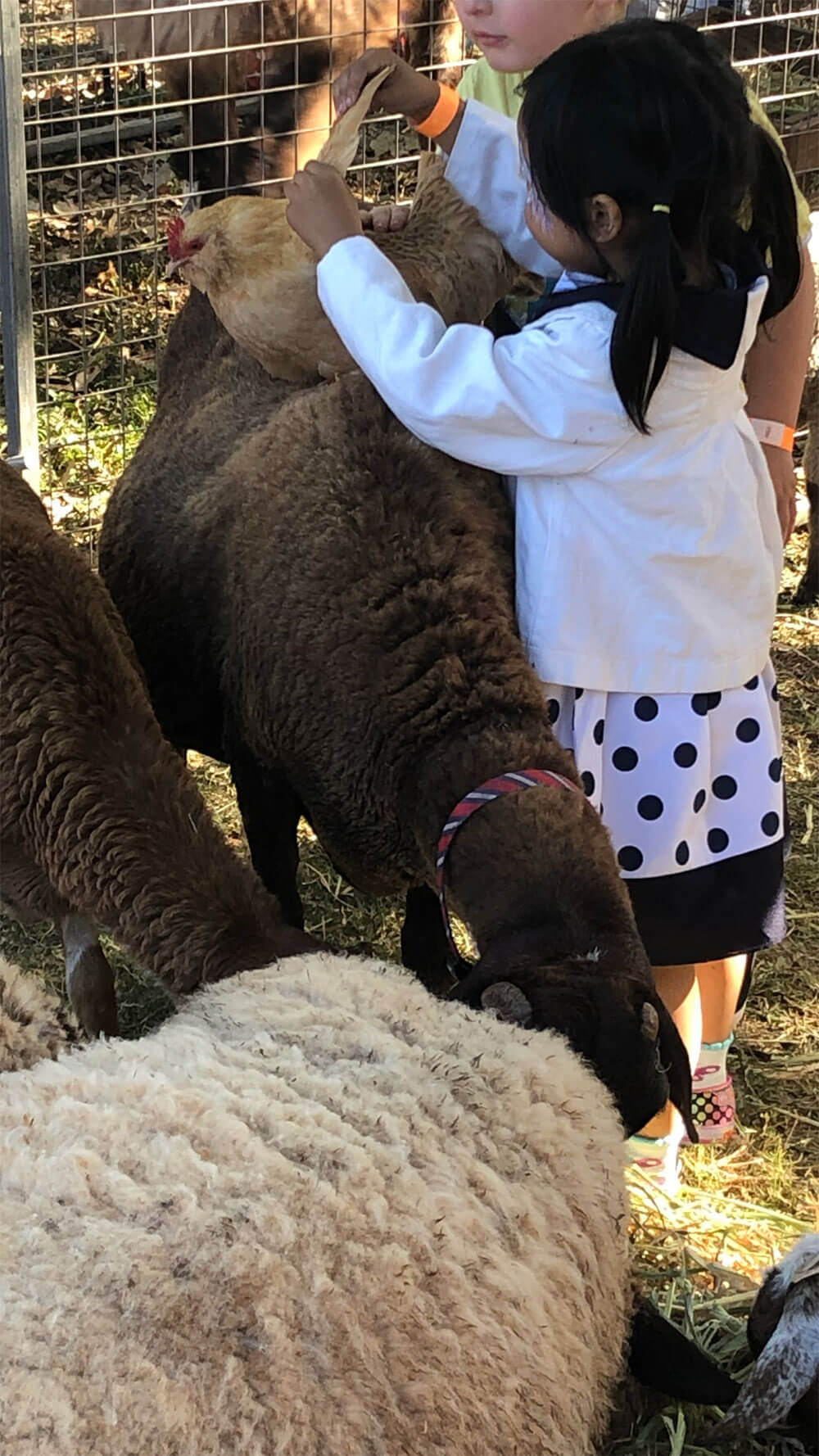
What are petting zoos?
A busy public place filled with noisy crowds and excited children is a highly unsuitable environment for animals. Being handled and forced into close proximity with strangers is a stressful and traumatic experience for most animals with the strain of captivity heightened by unusual noises, closeness to animals of other species, and the lack of shelter where animals can avoid contact with humans if they choose.
Petting zoos contribute to a cruel cycle of breeding, abandonment and premature death. Exhibitors breed or acquire young animals, prematurely removed from their mothers. They live much of their life on the road, and if they survive the stress of transport and regular handling, then they are typically disposed of when they become more difficult to handle or less “cute”. Many will be sold off to an uncertain fate.
What do children learn from petting zoos?
For children, there is nothing educational about seeing terrified living beings kept in extremely unnatural conditions. What children really learn when they see animals in petting zoos is how frightened animals behave in captivity and that it is acceptable for them to be stressed and transported (often in overcrowded hot stuffy trucks) long distances with inadequate bedding, lack of veterinary care, fresh water and food, simply for entertainment.
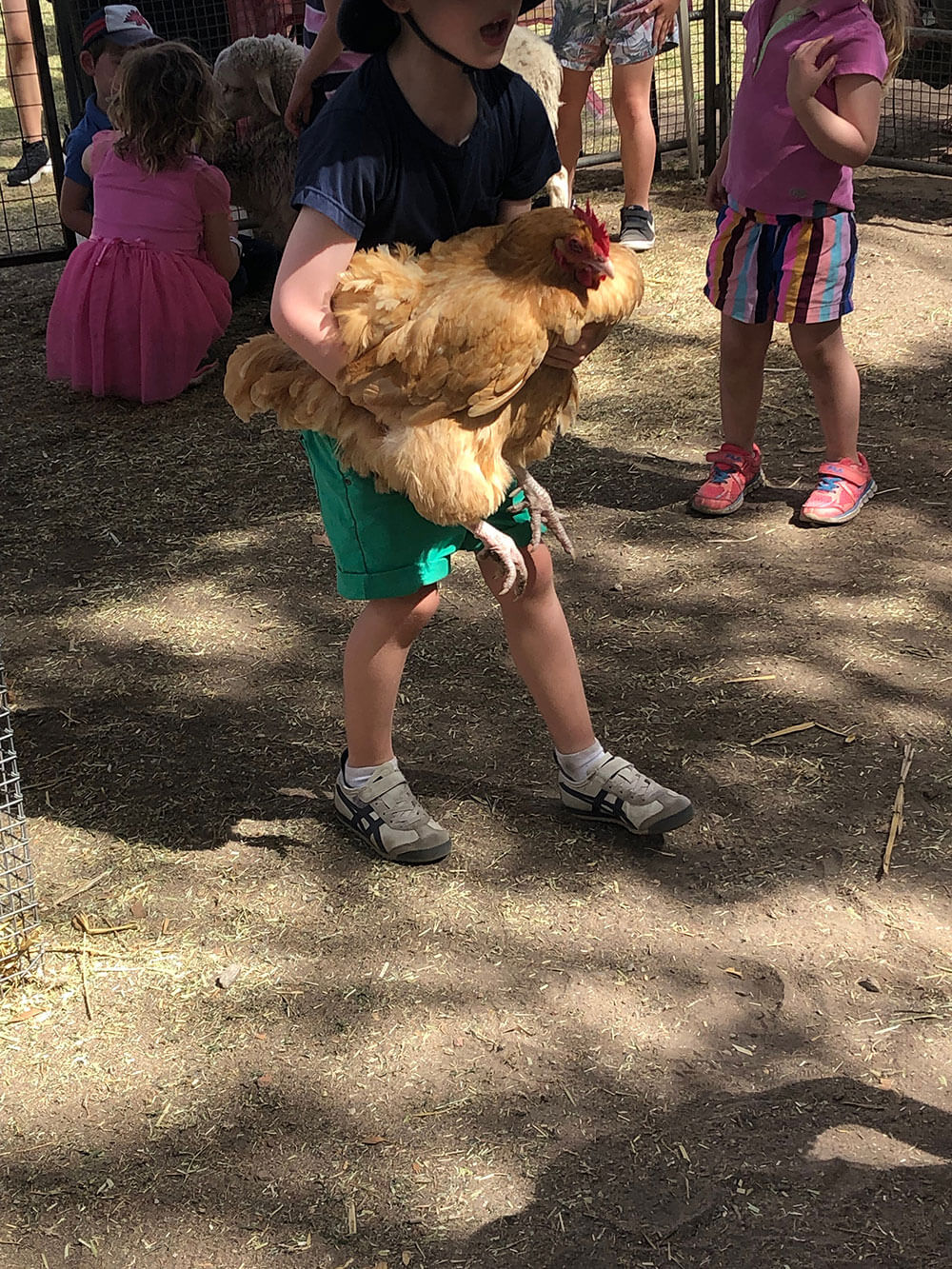
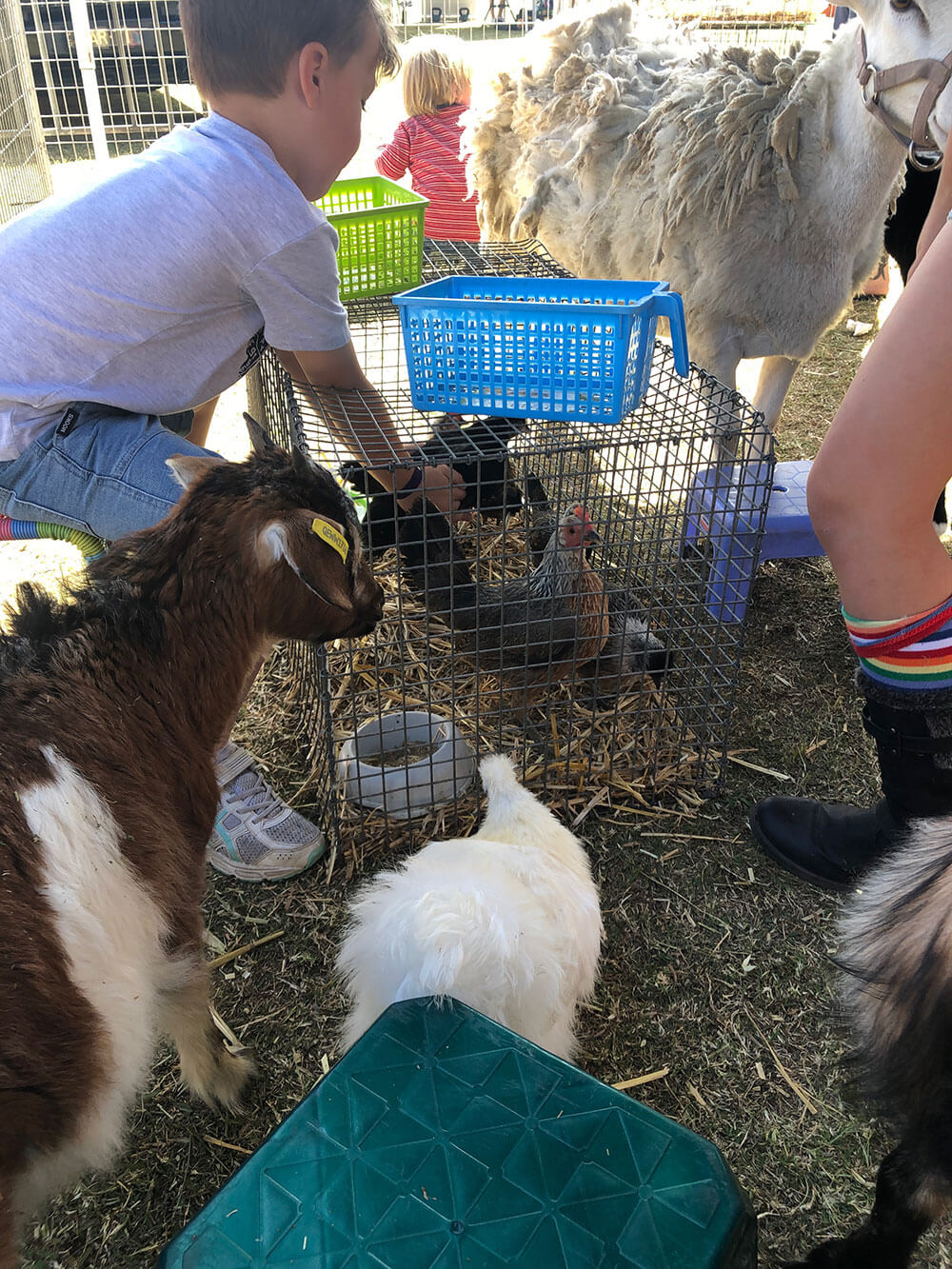
What are the health risks?
These exhibits can also present a risk to human health. Experts indicate that petting zoos are hotbeds of serious pathogens and over 75 zoonotic diseases including E. coli and salmonella. Children, pregnant women and the elderly are especially at risk. Infections can spread through direct or even indirect contact with animals, and in some cases, infections can be fatal. There are multiple cases of infant deaths in Australia and around the world from diseases contracted at petting zoos, for example:
- Queensland’s biggest outbreak of E.coli (August 2013)
- A two year old child dies from contracting E.Coli while visiting a Petting Zoo (June 2019)
Further information outlining these serious health risks can be found at: https://bit.ly/2Dixyol
What are we doing?
We are working to educate both the community and event organisers on the issues regarding petting zoos.
We are monitoring petting zoos for animal welfare issues and bringing issues to the attention of organisers and authorities
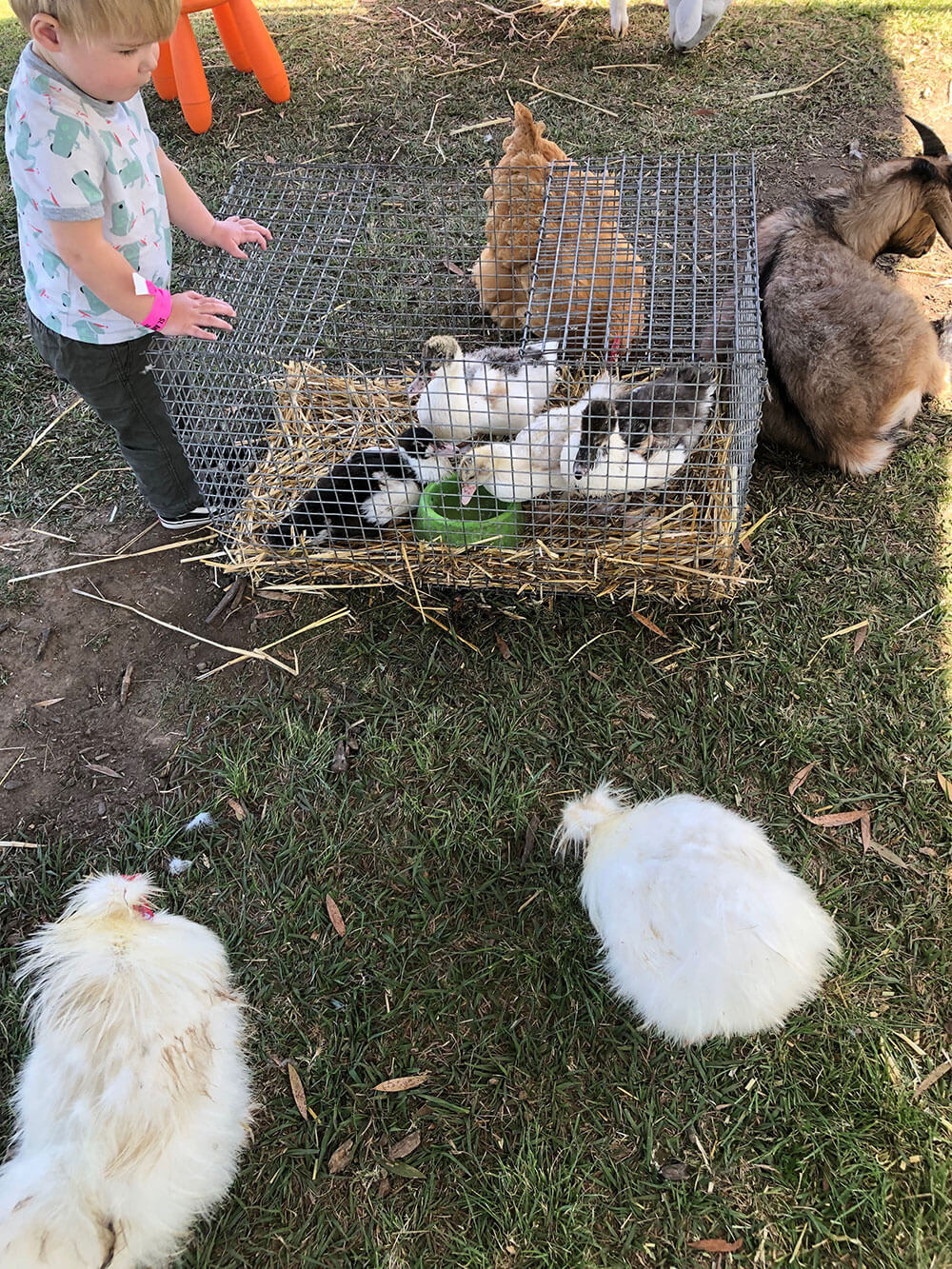
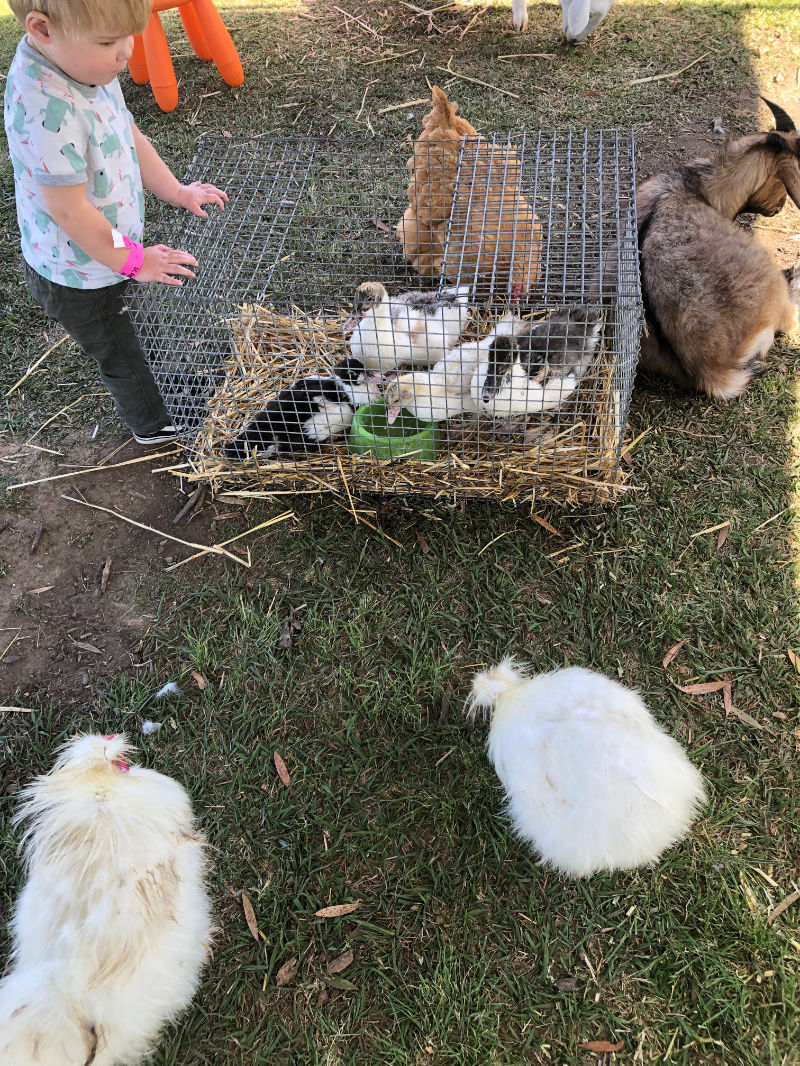
What can you do?
Choose cruelty-free alternatives to petting zoos
There are plenty of more ethical ways to entertain children and many family-friendly activities – such as face-painting, music and children's entertainers, bouncy castles, craft workshops, laughing clowns, temporary tattoos or hair beading.
Children can also learn how animals behave naturally in their own habitat through other opportunities like nature hikes, wildlife rehabilitation centres, farm sanctuaries and nature documentaries.
If a local school, market, shopping centre, or other event is organising a petting zoo, please share your concerns.
Let us know about petting zoos in your area so that we can reach out to them.
